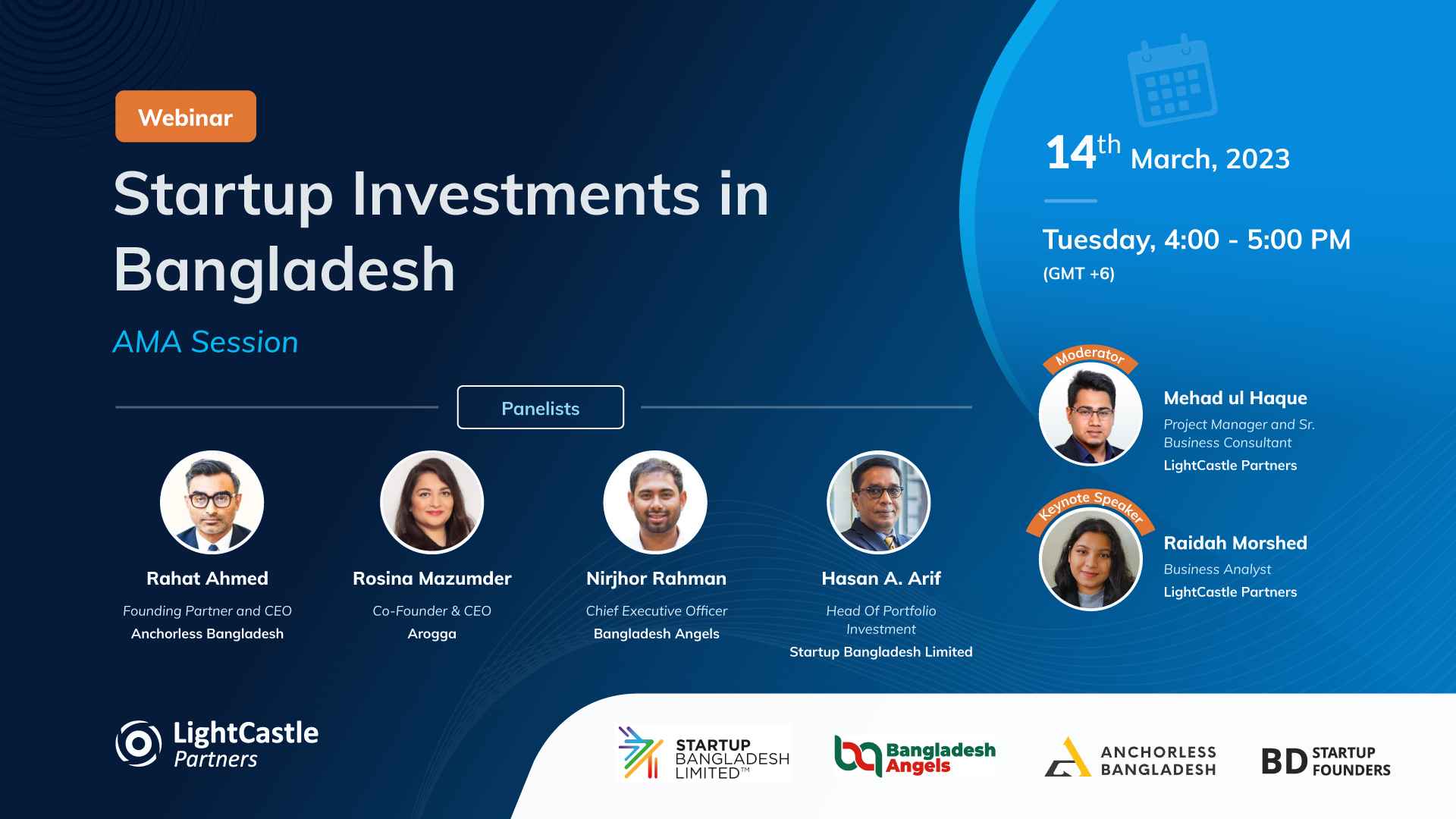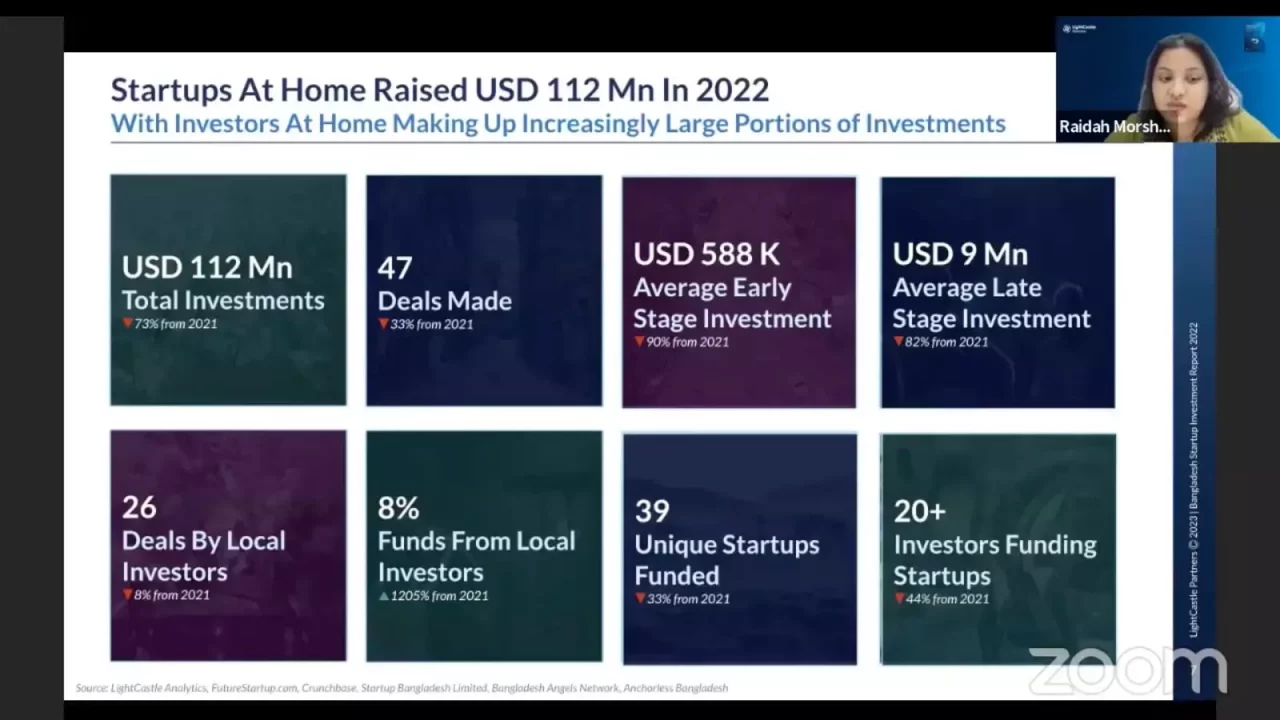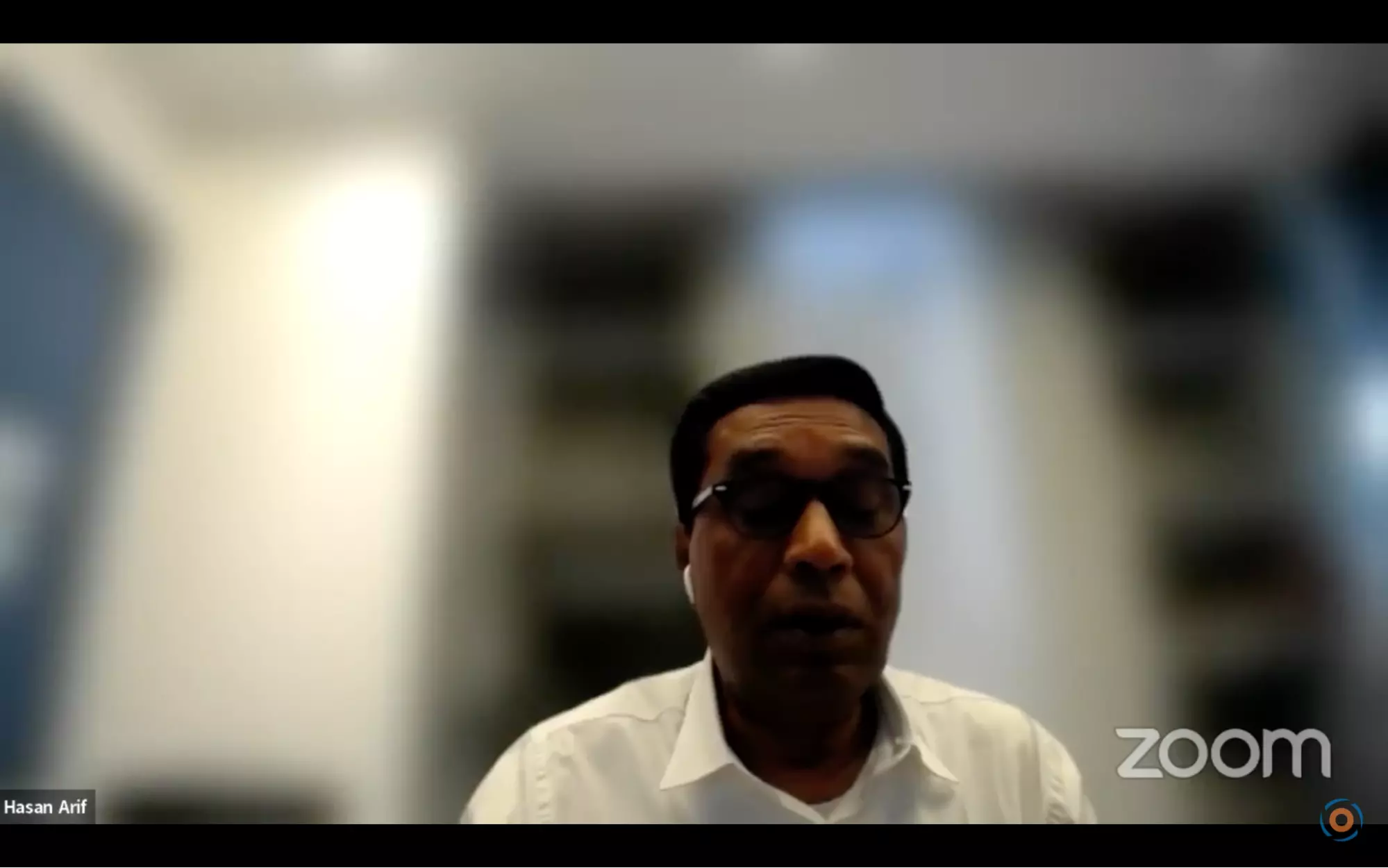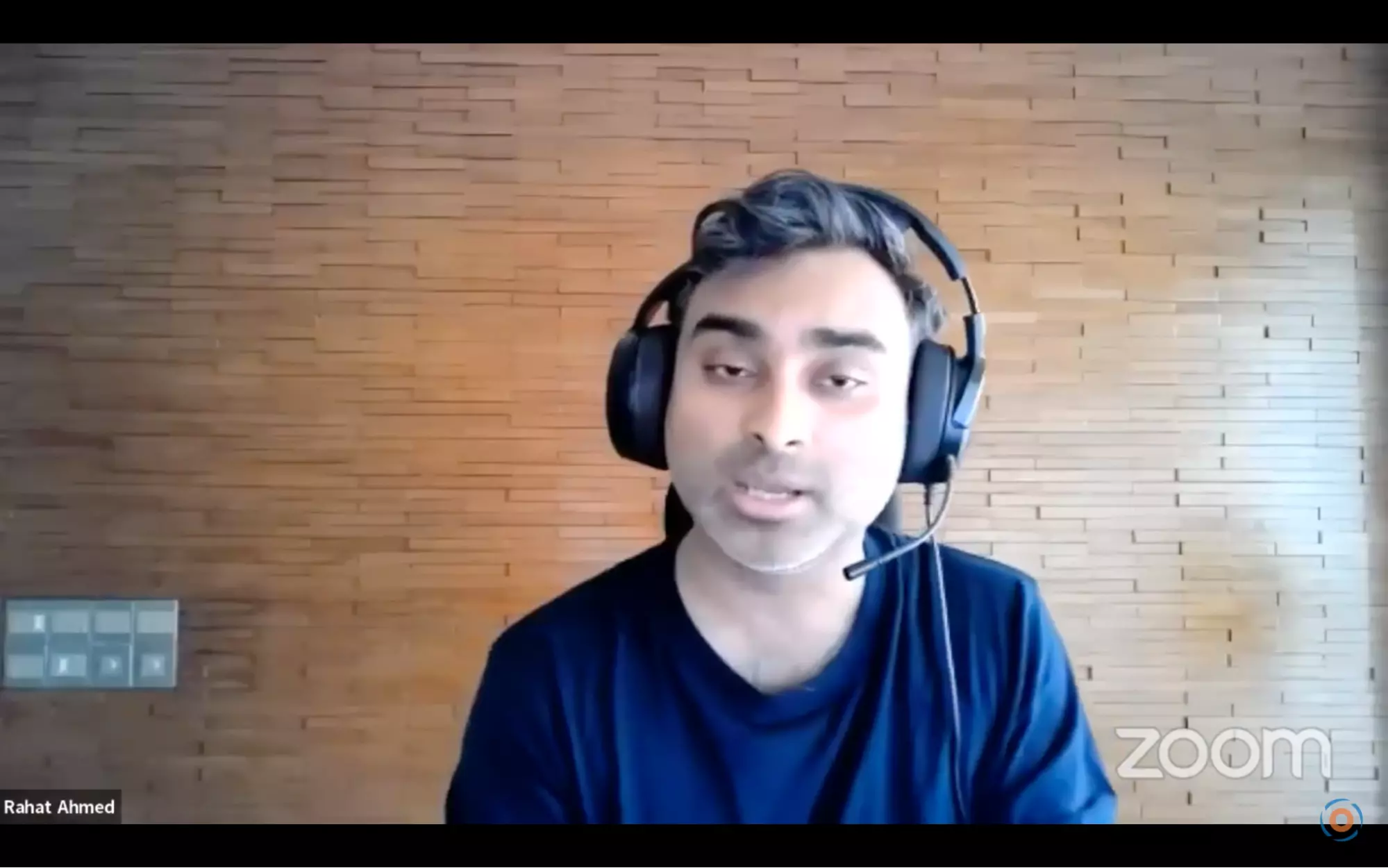GET IN TOUCH
- Please wait...

2022 was a turbulent year not just for Bangladesh but for the world. Inflation, the dollar crisis, and the Russia-Ukraine denote turbulent times for economies around the globe. Moreover, the recent failure of three major U.S. banks for tech startups, including Silvergate Bank, Signature Bank, and Silicon Valley Bank, has raised concerns about the potential impact on startup investments globally. As a result, startup funding has taken a fall around the globe in 2022, and the slowdown is predicted to continue to this year.
To foster increased dialogues on the startup ecosystem in Bangladesh, LightCastle Partners arranged a webinar on startup investments in Bangladesh on March 14, 2022, with a panel of experts representing venture capital, government fund, angel network, and startup to share their experiences and insights.
The panel consisted of:
The panel began with a keynote presentation of the Bangladesh Startup Investment Report 2022: A Year in Review by Raidah Morshed, Business Analyst at LightCastle Partners, discussing the latest state and trend of startup funding in Bangladesh.

According to the report, as a budding startup ecosystem, Bangladesh has a particularly large drop in funding in 2022 compared to peer countries, dropping by 73%. Key findings from the report include:
The following panel discussion, moderated by Mehad ul Huq, Project Manager & Sr. Business Consultant, covered topics such as raising investments for startups in the country, building a strong brand for Bangladeshi startups, strengthening the angel investment network, and navigating through the funding slowdown effectively. Here are our 7 key highlights from the session:
If you’re a startup in the pre-revenue stages and looking to raise investments and negotiate valuation, there are a few key points to consider.
Firstly, you need a good idea and a strong vision and mission for your company. The business idea must be innovative and efficient, allowing startups to solve problems more efficiently than traditional companies. This should be backed up by a founding team that is coachable and able to bring your mission and vision to life, with relevant experience in the field. In a heavily competitive market, startups must possess the execution ability to differentiate themselves while also being able to demonstrate that they are filling a unique gap in the market.
For Startup Bangladesh Limited, the idea and the team are critical factors in investment decisions, with at least two co-founders, one of whom must have a tech background. The company also looks for innovative products that have shown good traction, client acquisition, and a prospect for scalability, as well as the impact of the startup on the environment, society, and the economy.

When communicating with potential investors, you need to be able to build rapport as a founder and clearly articulate your idea and vision, as well as key takeaways and summarize your points. Look into regional comparables for startups to see how they did their valuations, but remember that finding quality investors who have a strong network is more important than just the valuation.
Lastly, even if the startup is not ready yet for funding, making progress on becoming investment ready, to demonstrate to potential investors that the startup is able to course-correct to achieve its goals.
The SAFE instrument can be an excellent tool for early-stage funding, as it doesn’t involve a lot of paperwork nor does it take a lot of time, unlike priced rounds. This is important because, at the early stages, both investors and founders want a quick and efficient process.
As a founder, during negotiation and pitching, the end goal is to make things as easy and time-efficient as possible for investors. The SAFE instrument achieves this by providing a simple and standardized investment structure that can help streamline the investment process. This means that startups can get the funding they need more quickly and investors can make their investments without the usual complexities and delays of a traditional priced round.

Angel investors in Bangladesh play a vital bridging role between early-stage companies and institutional capital. They connect founders with the right resources and investors, helping to propel their growth.
A good angel investor sees the potential in the founders and is also able to coach them through the early phases of their company’s development. It is crucial to build a network of potential investors and act as a bridge to bring this capital into Bangladesh. By doing so, angel investors can provide crucial support to startups and contribute to the overall growth of the Bangladeshi startup ecosystem.

International investors often categorize their investment targets into buckets, such as MENA, India, Latin America, or Southeast Asia. Unfortunately, historically, Bangladesh has been frequently overlooked due to not fitting within any of these buckets. However, recent trends have shown that many Southeast Asian venture capitalists are expanding their investment mandates into Bangladesh.
The term MENASA, standing for Middle East, North Africa, and South Asia, has also emerged as a potential category for Bangladesh. As visibility for the country increases, it is essential to be vocal about the possibilities and highlight the success of key startups such as ShopUp or Pathao to attract more investors. By doing so, younger startups in the same ecosystem will also gain attention from investors.
In the midst of a funding slowdown in 2023, Bangladeshi startups can position themselves uniquely by prioritizing survival over growth. Founders must be mindful of their financial situation, constantly monitoring their burn and keeping investors up to date on their progress.
Rather than focusing on growth, startups should prioritize strategies for survival. This could involve raising funds from local investors, which can be a great way to secure funding during the global funding drought.
Bangladesh boasts a vibrant local investment landscape that is often overlooked, and tapping into this investor group can be a valuable source of support for startups. By being strategic and nimble, Bangladeshi startups can weather the current funding slowdown and emerge stronger in the long run.

The startup ecosystem in Bangladesh has yet to experience a significant IPO exit, with only a few companies such as Augmentix and NewsCred making notable international acquisitions. However, it is important to note that a successful exit does not necessarily have to be an international acquisition.
A domestic acquisition can also be a viable exit strategy for a startup that has built a solid business. With the increasing number of venture-backed startups in Bangladesh, the possibility of more domestic acquisitions becomes more likely. However, it’s crucial for a startup to have a unique selling proposition that cannot be easily replicated by others with more capital and resources.
Our experts can help you solve your unique challenges
Stay up-to-date with our Thought Leadership and Insights